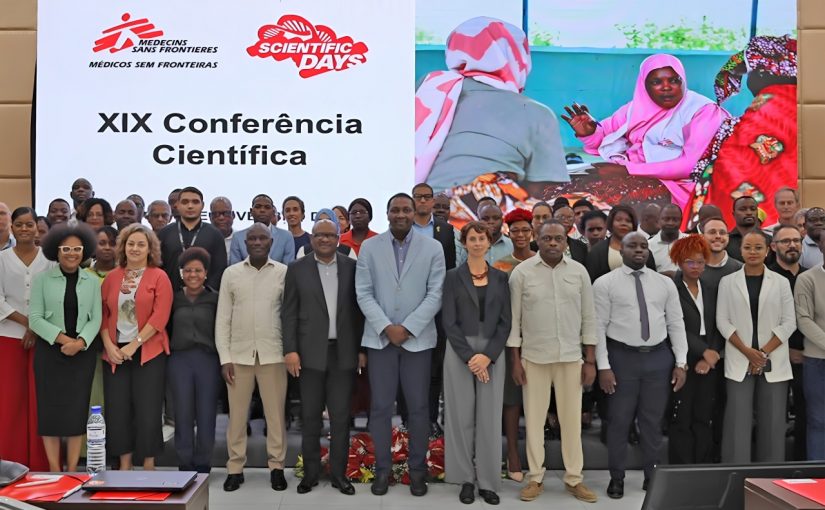Mozambique: Around 400 deaths, 1,800 injuries in six cyclones
Mozambique: Authorities stress critical role of medical research in health care

Photo: Jornal Moçambique
Mozambican health authorities on Thursday recognised the “critical role” of medical research evidence in improving health care in the country, calling for ethical standards and respect for regulation in the sector.
“It is important to remember that generating evidence is critical to improving health care, but ethical standards and respect for regulation must be part of our practice,” said Sérgio Chicumbe, national director of research at the National Institute of Health, yesterday.
Speaking during the launch of the scientific conference promoted by the non-governmental organisation Médecins Sans Frontières (MSF) in Maputo, he said it was essential that the generation of scientific evidence and research not be “an end in itself”.
“So science and scientific evidence must be at the service of life, equity and social justice. This is our vision as the ministry of health,” he said.
According to Sérgio Chicumbe, Mozambique and the national health sector now face challenges arising from extreme economic changes, extreme economic events such as floods, storms and cyclones, but also the issue of forced internal displacement in the northern provinces, which for eight years have been facing an armed insurgency, “increasing the vulnerability of the population”.
However, he also highlighted MSF’s intervention in these scenarios, helping to “mitigate suffering” and “restore lives” by supporting the strengthening of the country’s health system.
“So, we recognise that since Médecins Sans Frontières arrived in Mozambique, you have played a vital role in responding to public health crises in general, but also in providing clinical assistance, often in contexts of extreme vulnerability and difficulty in our territory,” he said, highlighting the NGO’s help for the vulnerable and most deprived people in the country.
On Tuesday, Mozambican health authorities called for “accelerated and comprehensive” training of medical specialists to improve access to surgical care and reduce the shortage of professionals, with some provinces having only one surgeon.
“The ideal ratio is to have 20 surgeons per 100,000 inhabitants, and we are well below that,” said Matchecane Cossa, head of the National Surgery Programme, on the sidelines of a meeting of the Technical Group for the Development of the National Plan for Surgery, Obstetrics and Anaesthesia in Maputo.
The health sector in Mozambique faces several challenges, which have been exacerbated in the last three years by strikes and walkouts called by doctors and other professionals in the sector, demanding improvements in working conditions and a review of salary policies.
The country has a total of 1,778 health facilities, 107 of which are health posts, three are specialised hospitals, four are central hospitals, seven are general hospitals, seven are provincial hospitals, 22 are rural hospitals and 47 are district hospitals, according to the latest data from the ministry of health.
MSF, which began humanitarian aid in the country in 1984, also warned at the end of last month of deteriorating living conditions, such as lack of water and sanitation, in the resettlement centres for victims of the new wave of attacks in the Mozambican province of Cabo Delgado.
“Living conditions in the camps are deteriorating, mainly due to limited access to drinking water and sanitation. The situation is likely to worsen with the arrival of the rainy season and the increased risk of waterborne diseases,” the NGO said in a statement released at the time.
At issue is a new wave of attacks attributed to terrorist groups, which has displaced nearly 93,000 people from Cabo Delgado and Nampula in northern Mozambique since the end of September, according to data from the International Organisation for Migration (IOM).












Leave a Reply
Be the First to Comment!
You must be logged in to post a comment.
You must be logged in to post a comment.